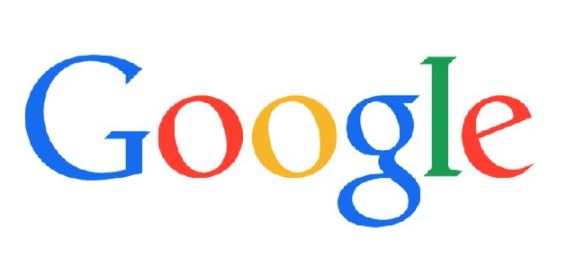Lagos lawyer, Enyioma Madubuike has raised interesting concerns about the launch of the Street View application in Nigeria as he highlights security and privacy concerns.

This week as part of Google’s move to further penetrate the Nigerian market through its ever innovative products it held the Google for Nigeria event where it announced among other things the launch of the Lagos on Street View.
And so finally, Nigeria joins the long line of countries entering the debate on the privacy and data protection issues that have plagued this otherwise useful tool. Google reports that it intends to extend the Street View to other Nigerian states immediately it has permission from the states to do so which implies that Lagos state has given permission for the roll out of Google Street View in Lagos. This alone raises fundamental issues about the process for adopting the technology in Nigeria but first what exactly is Google Street View.
What is Street View?
Google Street View is a web based application which augments Google Maps by providing panoramic street level images of various cities around the world. It was launched in 2007 in several cities in the United States, and has since expanded to include cities and rural areas worldwide. Anyone from anywhere in the world can zoom in and see what the street actually looks like to passersby. Google uses roving vehicles that drive down the street taking millions of digital photographs to collect the necessary data. The Street View application pieces these photographs together along with controls that allow users to step down the street, or turn their View to different angles.
What are the issues debated worldwide on Google Street View?
Google Street View is usually soldfor its usefulness in exploring public spaces, parks, museums, hotels and places of historical, cultural, and religious interest. However, questions about security and privacy have hampered the adoption of this technology in many cities around the world.
Privacy Issues
Arguments are ongoing in the international community as to whether the capture of people in a public place by a photograph without their permission constitutes an invasion of their right to privacy. Google’s position however has been that in a public place, an individual cannot reasonably expect a right to privacy. For example, if a person is accidentally captured in a photograph of a public place, say a historical monument, taken on a smartphone,he cannot claim that it violates his privacy. Street View pictures only show what is visible to anyone walking down a street. Private areas such as university campuses or amusement parks are added by agreement with the property owner.
However Street View represents a unique situation where a photograph is taken without either a warning to the individual or the individual’s consent, and can be accessed by anybody, anytime, anywhere, forever.
Further, although Street View images are captured in public areas, there have been instances of Google Street View cars driving on private roadways and complaints about images captured through windowsraising security and exposure concerns. Complaints like this led to Google accepting to automatically blur people's faces and car license plates to protect their privacy.Further, blurring can be requested by private individuals for faces, an entire house or car, and removal of images can be requested according to Google Street View’s privacy policies.
Although its policies prohibit adding panoramic photos that are an invasion of privacy to Street view, there is no definition of what constitutes an invasion of privacy. Google passes the initiative to find and report privacy violations. Oftentimes, the harm has been done before the affected person finds out and reports it. It is impossible for a person to constantly check Google Street View to ensure that no compromising images of them have been caught. Images on Google Street View may be from a few weeks to a few years old. It is hardly possible for people to go back that far in time and ensure that their privacy is not infringed.
Indiscriminate Wi-fi Data capturing
While capturing Street View Images, it has been shown that Google vehicles also monitor and collect information from Wi-Fi networks. In several cases Google has captured detailed personal information while monitoring unsecured networks. Many countries, including the United States and Canada, have expressed concerns to Google about the capture of Wi-Fi data during Street View mapping.
In agreeing to settle a case brought by 38 states involving the Street View project in the United States, Google has admitted violating people's privacyduring its Street View mapping project when it casually scooped up passwords, e-mail and other personal information from unsuspecting computer users. It did this by secretly collecting personal information — e-mail, medical and financial records, passwords — as it cruised by. It was data-scooping from millions of unencrypted wireless networks within the area. That settlement led to Google accepting to tighten its privacy monitoring policy in the United States and should serve as a point for discussion for other countries seeking to adopt the Google Street View technology.
Security Concerns
A few countries have expressed concernsabout the possibility of the use of Google Street View by criminals to spy on targets especially due to the ease of access. The Indian government recently refused to grant Google permission to cover India through Street View mainly because of the security concerns, like panoramic images available will aid terrorist attacks, and that sensitive areas such as nuclear establishments and defence areas can be exposed. Because of these concerns, it is clear that where any country decides to allow the Street View technology, it must enter into an agreement to restrict capture of sensitive locations. It will be irresponsibly naïve for any country to allow unrestricted access for Street View capturing.
Implications for Nigeria
First,in discussing the implications of Street View for Nigeria, it must be pointed out that Nigeria today has no concrete data protection law. Nigeria has no central regulator for the protection of the data of its citizens. The only body of laws that provide specific and detailed provisions for the regulation of the collection, storage, processing, management, and operation of data in Nigeria is the NITDA Guidelines on Data Protection. However, although the NITDA Guidelines apply to federal, state and local government agencies and institutions as well as private sector organisations that own, use or deploy information systems of the Federal Republic of Nigeria, and also apply to organisations based outside Nigeria if such organisations process personal data of Nigerian residents, the provisions of the NITDA Guidelines are not mandatory for private companies and only serve as a point of reference for data collectors with respect to the minimum data protection requirements for the collection, storage, processing, management, operation, and technical controls of personal data.
In light of the absence of a data protection regulator in Nigeria, one can only wonder the terms of engagement for the launch of Google Street View in Lagos last week. Even though the prospect of the Street View technology especially as a complement to Google Maps in Nigeria is exciting, the question that must be asked is; who and what exits on this side to ensure that the rampaging juggernaut does things properly here in Nigeria and is held accountable for any missteps which it has shown propensity to make? Who is negotiating with google on behalf of Nigerians who will be exposed to unauthorized photographs accessible to the world? Who is negotiating on behalf of Nigeria to protect its citizens, its secrets, and its sovereignty?
Some countries are already imposing requirements on Google Street View like requiring it to inform the public in advance before it photographs that area, such as through the publication of an advertisement in a newspaper. Some countries have also suggested that people be given the option of ‘opting in’ to be photographed instead of the current opt-out mechanism currently employed by Google Street View.
What and how is data being collected? Since Google has already collected pictures of places in Lagos, was the collection done by Google cars and was data in unencrypted wi-fi connections scooped up as was done in its operation in other countries? Where is the data collected to be stored? Is it possible for data collected to be used against Nigeria’s interests, especially if it is stored in the US and subject to US government control rather than Nigerian control? It would be nice to see an agreement to keep all data collected in Nigeria.
Is Nigeria thinking of what kind of sites it would want accessible to the world as it affects the image it tries to portray to the world? I do not think we should intentionally allow the display of unflattering sites to potential visitors all over the world. These discussions are meant to be had first at the federal level before state level permissions are considered.
The truth is that Nigerians generally may not have attained the necessary awareness of the issues involved in this discussion today, and may not care but if the impact of adopting this technology is permanent it is important that responsible discussions be had today. It is also true that Street View may have positive benefits for Nigeria’s security services at the expense of civil rights and the arguments about what trumps what should not be left till later.
What is however not arguable is the immense implications of Google Street View on the entire country and it will serve us all well to fully consider the implications of adopting this technology and create necessary safeguards to protect the public. It is also not arguable that any permission to allow Street View should incorporate specific and general obligations on Google.
And so at this point it is important that we ask the question: Who is standing at the gates?
Enyioma is co-founder at Legitng, a Nigerian legal service and content start-up. He advices startups, businesses and government on the intricate legal issues of a changing 21st century environment.





No comments:
Post a Comment